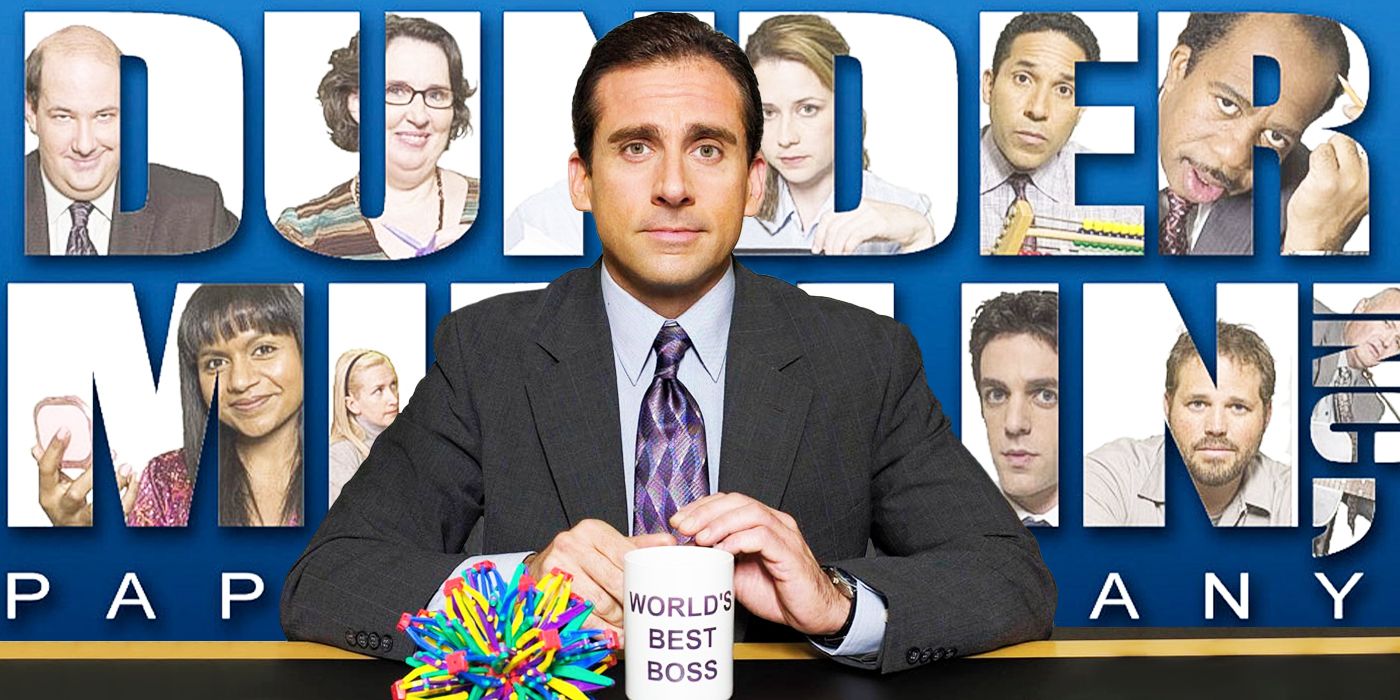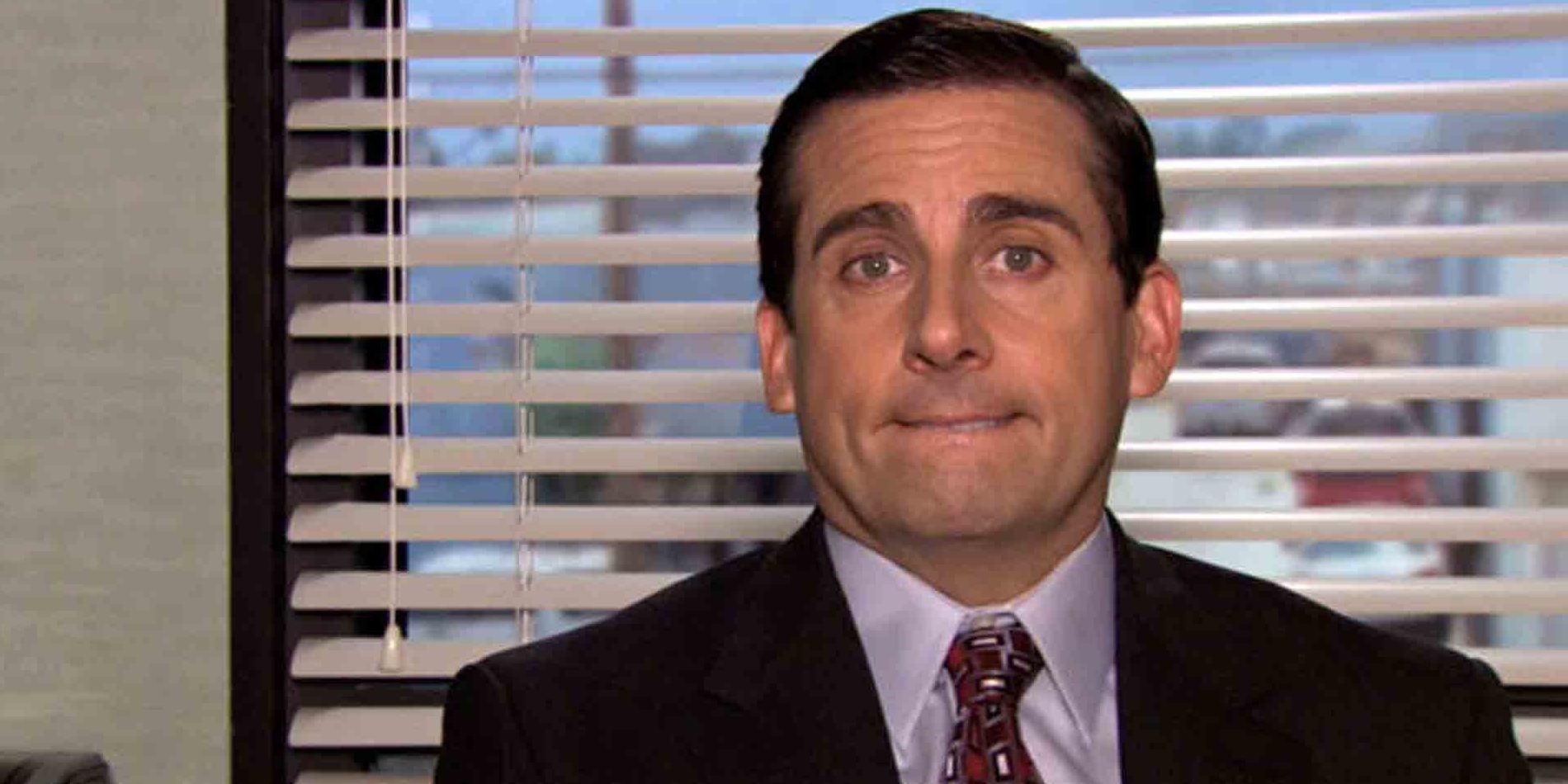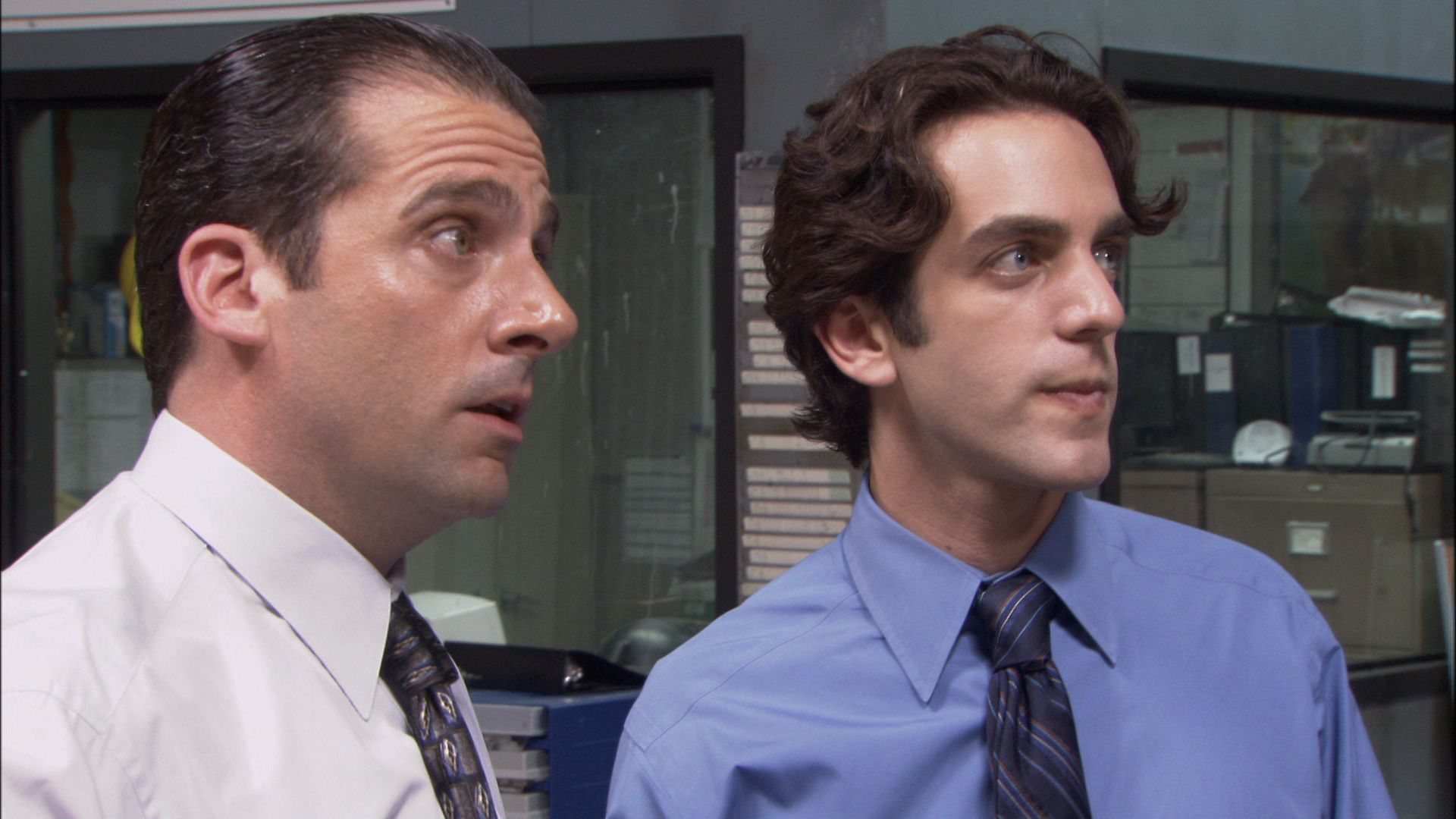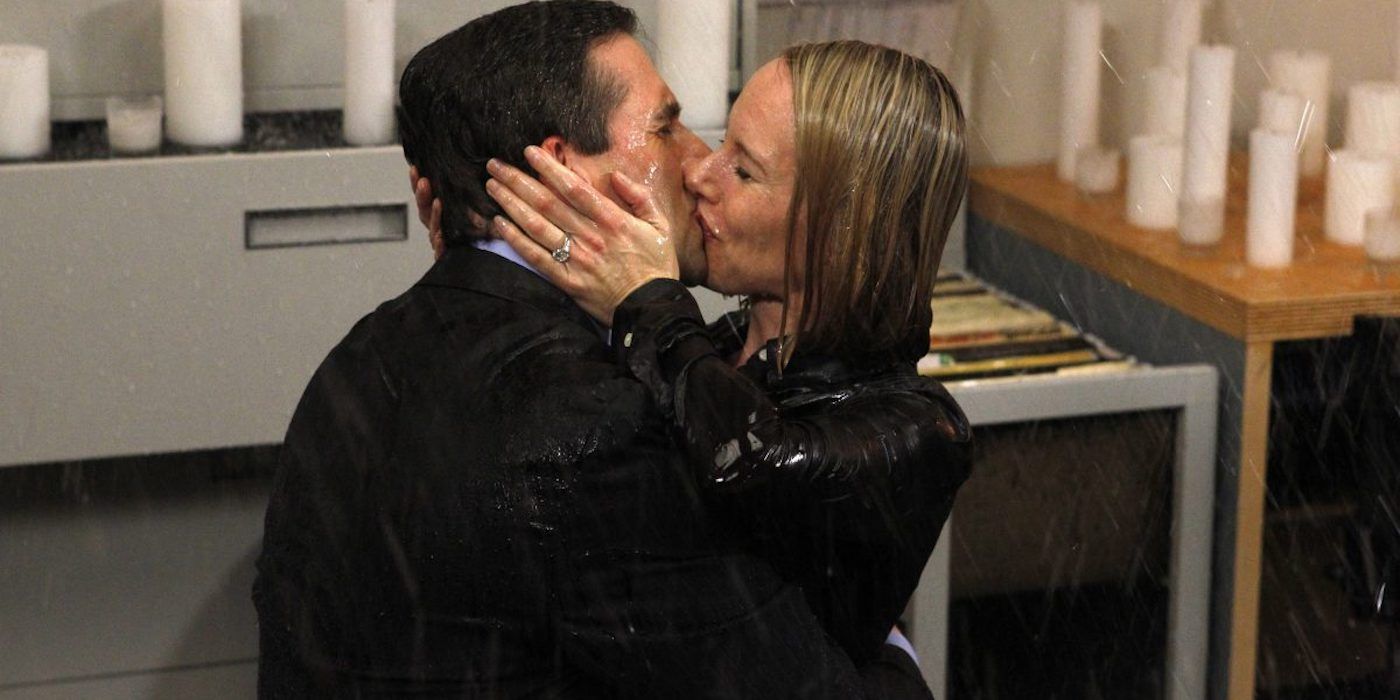The Office is one of the most beloved, popular, and now classic sitcoms. Even so, the series, of course, has its critics. Said critics often say that they can’t get past how horrible Michael Scott (Steve Carell) is. And, at the beginning of the series, he is, in fact, horrible. But, over the course of the series’ run, Michael’s crass, offensive personality changes and grows into something softer and kinder. And, it does so in a way that feels surprisingly organic and natural. So, what changed for Michael, and how did his character arc give him such honest growth? It all lies in the relationships he forms with his colleagues.
In the beginning of this fan favorite series, Michael Scott isn’t simply an obnoxious and out-of-touch character. It’s what the show is all about. Many of the jokes and running gags center entirely around Michael’s lack of social graces. It’s hard to forget the painfully inappropriate exercise he puts in place for the office’s “diversity day” or how he forces an employee out of the closet. The things Michael Scott did, said, and confusingly got away with were actions that would inspire discomfort, lawsuits, and almost certainly, his firing in most real workplaces. But, The Office didn’t start out as a story about love, relationships, or kindness.
The series was, of course, an American adaptation of the original UK version. The original series followed a crass and rude boss. And, while this concept was successful on its own, a tale of an offensive manager who relentlessly disrespects and torments his employees isn’t exactly a basis for the depth and heart that one might seek in a comfort series. While the original may have succeeded and plateaued there, Michael Scott’s journey went in a different direction and grew to be much more. The Office’s first seven seasons aren’t about just about a terrible boss. They’re about a man who builds relationships that encourage him to change for the better.
By the end of the seventh season when Michael departs, he manages to live up to the claim on his famous “World’s Best Boss” mug. Michael Scott is not the silly caricature that the show seems to have originally set out to make him. Rather, he is a complex person who, as is true for everyone, has unpleasant attributes that are as a result of his experiences and his inner world. Michael’s ignorance comes as a result of many things: low self-esteem, uncertainty, and a misguided understanding of the kind of person he should strive to be. But, Michael isn’t ignorant because he’s evil. He’s ignorant because he hasn’t learned to empathize.
When a character frequently narrates to a camera in a mockumentary-style show, viewers are bound to get a little more insight into what the character thinks and feels than they would otherwise. In this case, Michael often lets on to who his idols are and who he aspires to be. He often mentions how his former boss, Ed Truck, scared his employees and didn’t inspire a fun, lighthearted environment. Michael expresses wanting to do the opposite. There’s also a lot to be gleaned by Michael’s relationships with whom he considers his friends. Todd Packer, (David Koechner) for example, makes Michael’s impropriety look kind and his rudeness look polite in comparison. Packer is aggressive and bizarre, and Michael seems to idolize him for it. Packer is what Michael views as “cool.” And, Michael is desperate to be “cool” and accepted. Similarly, he thinks Ryan’s (B.J. Novak) faux, insincere confidence is how he should strive to be.
At face value, Michael seems to have an appreciation for a strange type of personality and misguided values. But, when viewers get to see deeper into what Michael wants, it’s clear that his shallowness is exactly that: shallow. In “Take Your Daughter To Work Day” (Season 2; Episode 18,) Michael shows a clip of him as a child on a kids' talk show. When asked what he wants to do when he grows up, young Michael declares, “I want to be married and have a hundred kids, so I can have a hundred friends, and no one can say no to being my friend.”
Michael’s yearning for acceptance is often what pushes him from practicing acceptance around the office. But, as he gains sympathy from his colleagues in spite of his off-putting personality and management style, the empathy rubs off on him. It’s easy for power to go to one’s head and make a lack of empathy even worse. But Michael’s leadership position allows him to connect with others around him, and he grows to be a better person as his relationships deepen.
There is one relationship, in particular, that punctuates Michael’s journey and growth. In earlier seasons, it doesn’t seem, at all, likely that Michael Scott is destined for a great love story. Viewers watch Michael in painfully cringe-worthy relationships: from being horribly womanizing with his girlfriend, Carol (Nancy Carell) to bringing his Benihana waitress (Kulap Vilaysack) back to an office party and asking her to accompany him to Jamaica after treating her terribly, to the seasons-long Jan (Melora Hardin) train wreck. Michael is a misogynist, and he has a horrible relationship track record.
But, when Holly Flax (Amy Ryan) comes to the office as the new HR rep, everything changes for Michael. Holly is like Michael in many ways, but she differs from him in his shortcomings. For one thing, she's proudly and staunchly ethical. As Michael falls in love with Holly, viewers watch him growing into a better version of himself without letting go of who he is. He no longer resents the concept of the HR department for controlling his behavior. He learns to reject his misogynistic, bigoted, and obnoxious ways — not because he feels that he needs to change for Holly, but because he admires her and her values. He becomes a father figure for Erin (Ellie Kemper) and he makes decisions to protect the folks who work for him. He turns on Packer when he realizes why he makes Holly uncomfortable. He stops idolizing people for the wrong reasons and, instead, compromises and becomes a team player.
With Jim’s (John Krasinski) classic, mortified glances to the camera throughout the series, he acts as liaison between the viewers and the members of the titular office. As a result, Jim’s final moments with Michael before Michael departs in “Goodbye, Michael” (Season 7, Episode 22) strike an especially powerful chord. Jim calls Michael the “best boss [he] ever had:” a claim that at the beginning of the series would have been unfathomable. Like the viewers, Jim watched Michael grow into an understanding, kind, and gentle leader, thanks to those around him.
Michael Scott’s growth isn’t just about redeeming his character and making the series a more palatable watch. Michael’s journey gives The Office depth and realism that viewers almost certainly didn’t expect. At its start, The Office didn't seem like a show that would have a moral or message at all. But, in the end it does. If Michael Scott really can become the “World’s Best Boss,” maybe there’s hope for some of the worst of us.




